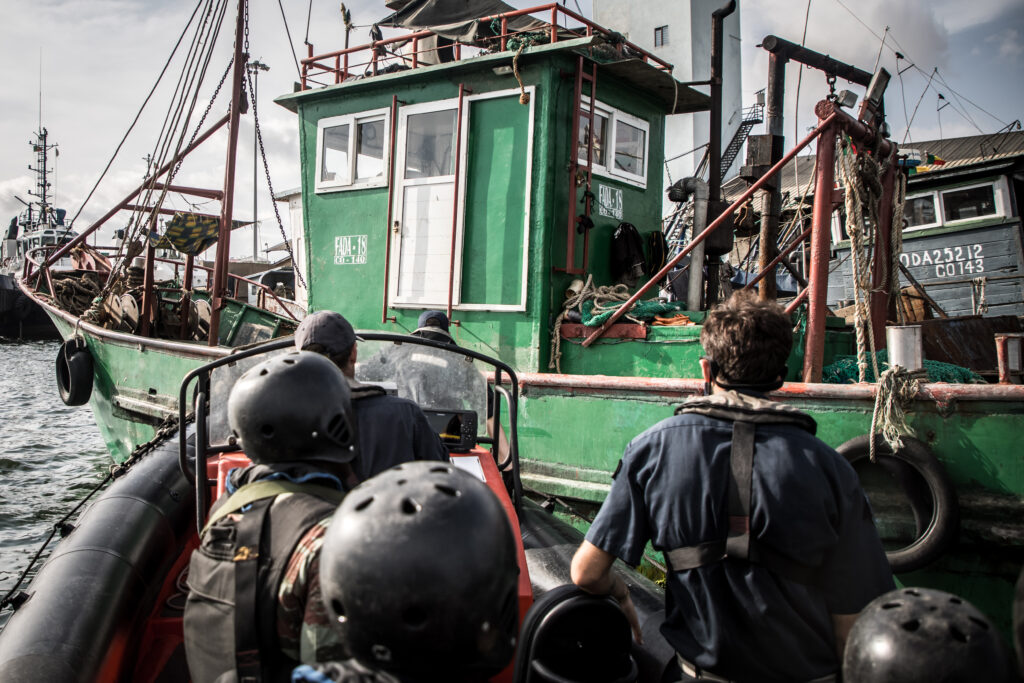ADF STAFF
The Fisheries Committee for the West Central Gulf of Guinea (FCWC) has established a Regional Monitoring, Control and Surveillance Center (RMCSC) to help counter illegal fishing in the Gulf of Guinea.
Headquartered in Tema, Ghana, the center will help FCWC member countries Benin, Côte d’Ivoire, Ghana, Liberia, Nigeria and Togo manage their fishing sectors. The new center was integrated into the FCWC West Africa Task Force, which is financed by the Norwegian Agency for Development Cooperation, known as Norad.
The center opened in mid-May. It is equipped with vessel-tracking systems and has the capacity to collect data on authorized fishing vessels across the region where illegal, unreported and unregulated (IUU) fishing has been a scourge for decades.
“The RMCSC’s establishment brings us a step closer to having coordinated approaches to joint action, including patrols for better security in the maritime domain of our region,” Seraphin Dedi, secretary-general of the FCWC, told Ghana Web.
Illegal marine trade costs West Africa almost $1.95 billion across the fish value chain and $593 million per year in household income. IUU fishing also decimates rapidly diminishing fish populations, destroys ecosystems and has been linked to other crimes such as piracy, kidnapping and drug trafficking.
China is the world’s worst IUU fishing offender, according to the IUU Fishing Index, and has targeted West Africa for years.
The center is expected to help countries counter the methods fishing trawlers use to evade law enforcement in areas where maritime security is weak, such as falsifying vessel license and registration information, underreporting catch size, using illegal gear and incorrect vessel names, and turning off their transponders to avoid detection.
Illegal fishing vessels also are known to fly the flag of a country under which a ship is registered, instead of the country of the ship’s owner, to avoid financial charges or restrictive regulations. Vessels pay registration fees to the countries.
The center will get ongoing technical support from Trygg Mat Tracking (TMT), a nonprofit research organization specializing in IUU fishing and maritime crimes. TMT has worked with the FCWC and member nations to establish the center since 2015.
TMT often works with national fisheries authorities by providing intelligence and analysis, offering monitoring, providing control and surveillance training, and giving technical support in a variety of areas, including port control.
“We are currently working in collaboration with the RMCSC staff and the European Fisheries Control Agency to develop and then implement the [center’s] required standard operating procedures,” Duncan Copeland, TMT’s executive director, told ADF in an email. “We are providing training to both the regional center staff and then national staff on the use of the systems the center will be using and how to integrate these with other sources of intelligence.”
Copeland said a regional vessel monitoring system is being established for use by all member nations, while the center also will use automatic identification systems to track vessels. The center also is incorporating a regional record of authorized vessels that all participating countries can access.

